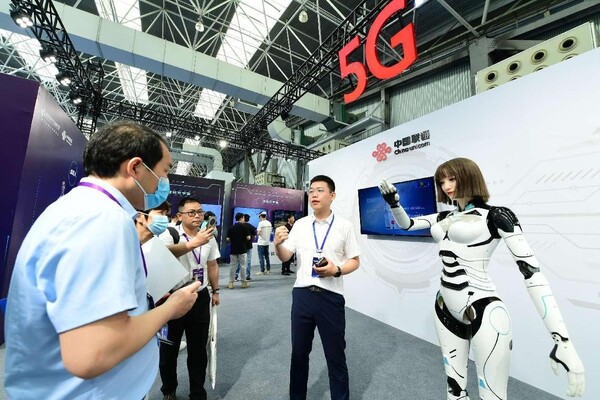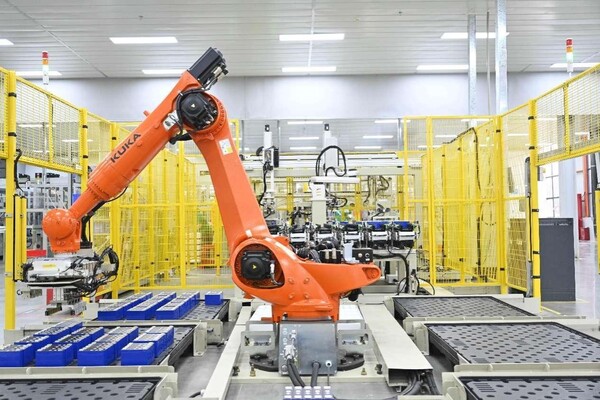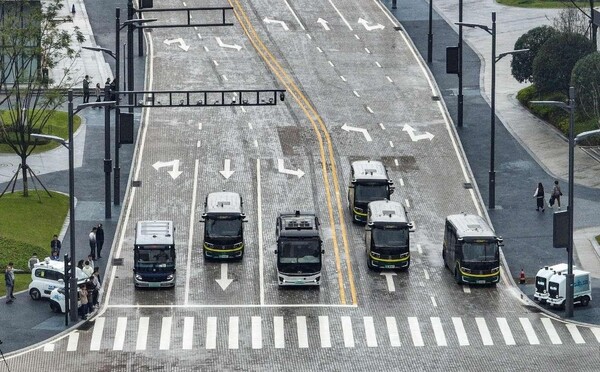By Lin Lili, People's Daily
In Baoding, north China's Hebei province, the congestion index in downtown areas during rush hours has been reduced by 4.6 percent, with an 11.6 percent increase in average traffic speed, thanks to an intelligent upgrade of the city's traffic light system that allows real-time adjustment of timing based on actual traffic flow.
When "smart cars" run on "smart roads," the collaboration between vehicles and infrastructure can be best optimized. To allow different types of vehicles to run smoothly on various kinds of roads, standardized development is the key approach.

The central economic work conference recently held in Beijing pointed out that China will develop a number of strategic emerging industries such as bio-manufacturing, commercial aerospace, and low-altitude economy, and open up new paths for future industries such as quantum and life sciences.
A plan on the standardization of new industries for the period between 2023 and 2035 was recently issued to set standards and promote better development of relevant sectors.

According to Lin Le, founder and CEO of Shanghai Lingshu Technology, the lack of a unified format requirement for data collection from intelligent connected vehicles will impact the flow of data within the automotive industry.
In the development of new industries such as autonomous driving vehicles, standardization plays a fundamental and leading role.

New industries refer to emerging industries and future industries that have grown and expanded through the application of new technologies. These industries are characterized by active innovation, technological intensity, and broad development prospects, and they play a crucial role in the overall development of the national economy and social progress, which is related to the national economic and social development, as well as the optimization and upgrading of industrial structure.
"In recent years, China has consistently regarded standardization as a crucial support and guarantee for promoting high-quality development of industries. Significant progress has been made in the standardization of new-generation information technology," said Yang Jianjun, deputy director of the China Electronics Standardization Institute.
According to statistics from relevant organizations, since the 13th Five-Year Plan period (2016-2020), China has established and improved a mandatory national standard system for electronic product safety, cybersecurity, and other areas.
Over 1,000 national and industry standards have been developed in key areas such as integrated circuits, artificial intelligence, blockchain, the Internet of Things, and industrial internet, to meet the new demands for standard supply capacity arising from industrial technological innovation and development.
Efforts have been made to establish national standardization technology organizations for integrated circuits, industrial software, and other fields to address technical standard problems. China has also taken the lead in developing nearly 200 international standards, continuously increasing its participation in and contribution to international standardization.
The plan for the standardization of new industries takes into account the driving role of the overall and long-term development in the economy and society, while balancing the current status and potential of industrial development.
Emerging industries mainly focus on eight areas, including new-generation information technology, new energy, new materials, high-end equipment, new energy vehicles, environmental protection, civil aviation, as well as shipbuilding and marine engineering equipment.
The focus of future industries includes metaverse, brain-computer interface, quantum information, humanoid robotics, generative artificial intelligence, bio-manufacturing, future displays, future networks, and new energy storage.
In a digital twin factory, built by Baosteel Engineering in cooperation with Baosteel, drawings, documents, models, and engineering costs can be delivered in digital forms simultaneously in different workshops.
"The digital twin factory demonstrates the advantages of digital delivery standards. It implements data standards and governance from the source, and thus ensures quality. This data-driven business model allows data to flow along the product, asset, and value chains, resulting in benefits," said Yuan Lei, vice general manager of Baosteel Engineering, adding that this project has increased design efficiency by 60 percent and reduced construction period by 21 percent.
Standardization can facilitate technological innovation in new industries, promote the integration and development of new industries, and improve product quality and reliability. Common examples in daily life include rails, power sockets, and internet protocols, which have all achieved explosive growth through standardization. Standardization will bring prosperity to new industries.
"Currently, China's standardization in new industries still faces challenges such as an incomplete system, insufficient advancement, and a lack of internationalization," said an official from the Standardization Administration of China.
Therefore, the plan for the standardization of new industries has proposed key tasks such as improving an efficient collaborative work system for standardization in new industries, supporting the construction of an industrial scientific and technological innovation system, promoting the construction of standard systems for emerging industries, forward-looking layout of future industrial standard research, and creating new space for the development of high-level international standardization.
Industrial standardization benefits enterprises, and there is great anticipation for new industrial standardization efforts.
"For strategic industries, standardization not only significantly reduces trial and error costs and repetitive resource investments, but also strengthens collaboration between upstream and downstream sectors, and establishes an ecological synergy, bringing new opportunities to companies in the supply chain," said An Hongwei, general manager of Suzhou-based tech firm IAE.

